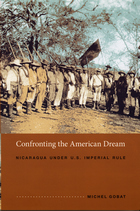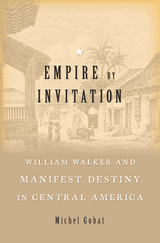
Gobat focuses primarily on the reactions of the elites to Americanization, because the power and identity of these Nicaraguans were the most significantly affected by U.S. imperial rule. He describes their adoption of aspects of “the American way of life” in the mid–nineteenth century as strategic rather than wholesale. Chronicling the U.S. occupation of 1912–33, he argues that the anti-American turn of Nicaragua’s most Americanized oligarchs stemmed largely from the efforts of U.S. bankers, marines, and missionaries to spread their own version of the American dream. In part, the oligarchs’ reversal reflected their anguish over the 1920s rise of Protestantism, the “modern woman,” and other “vices of modernity” emanating from the United States. But it also responded to the unintended ways that U.S. modernization efforts enabled peasants to weaken landlord power. Gobat demonstrates that the U.S. occupation so profoundly affected Nicaragua that it helped engender the Sandino Rebellion of 1927–33, the Somoza dictatorship of 1936–79, and the Sandinista Revolution of 1979–90.

Michel Gobat traces the untold story of the rise and fall of the first U.S. overseas empire to William Walker, a believer in the nation’s manifest destiny to spread its blessings not only westward but abroad as well.
In the 1850s Walker and a small group of U.S. expansionists migrated to Nicaragua determined to forge a tropical “empire of liberty.” His quest to free Central American masses from allegedly despotic elites initially enjoyed strong local support from liberal Nicaraguans who hoped U.S.-style democracy and progress would spread across the land. As Walker’s group of “filibusters” proceeded to help Nicaraguans battle the ruling conservatives, their seizure of power electrified the U.S. public and attracted some 12,000 colonists, including moral reformers. But what began with promises of liberation devolved into a reign of terror. After two years, Walker was driven out.
Nicaraguans’ initial embrace of Walker complicates assumptions about U.S. imperialism. Empire by Invitation refuses to place Walker among American slaveholders who sought to extend human bondage southward. Instead, Walker and his followers, most of whom were Northerners, must be understood as liberals and democracy promoters. Their ambition was to establish a democratic state by force. Much like their successors in liberal-internationalist and neoconservative foreign policy circles a century later in Washington, D.C., Walker and his fellow imperialists inspired a global anti-U.S. backlash. Fear of a “northern colossus” precipitated a hemispheric alliance against the United States and gave birth to the idea of Latin America.
READERS
Browse our collection.
PUBLISHERS
See BiblioVault's publisher services.
STUDENT SERVICES
Files for college accessibility offices.
UChicago Accessibility Resources
home | accessibility | search | about | contact us
BiblioVault ® 2001 - 2024
The University of Chicago Press









